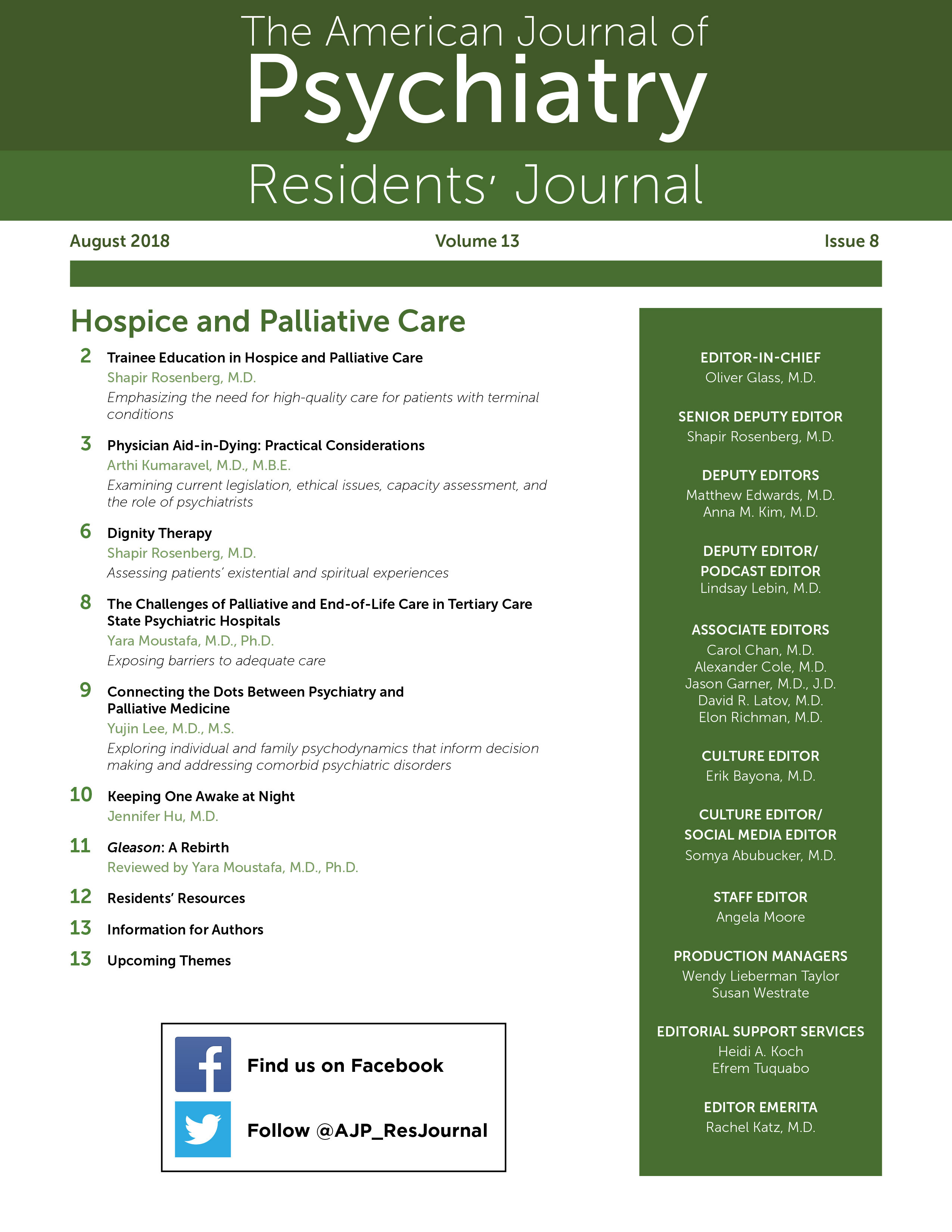It is my honor to introduce this special issue of the Journal devoted to the topic of hospice and palliative care. End-of-life care is an often underrepresented facet of medical student and resident education, despite intense and often ongoing clinical exposure to dying, death, and grief processes across medical and psychiatric specialties. Most health care providers, including psychiatric generalists and specialists, may be called upon to treat and assist patients and families coping with serious or terminal illness. Across a broad swath of settings, patients with end-stage renal, pulmonary, or neurologic disease, patients with terminal cancer, patients with life-limiting sequelae from substance use disorders or suicide attempts, families of neonates or of children with severe genetic aberrations, and the bereaved all may seek help from psychiatric providers.
As stated in my original call for submissions for this theme, high-quality care for seriously ill or dying patients and support for their families require skills in multiple areas of medicine and psychiatry. Psychiatric trainees and practitioners have much to offer in this area, including expertise in cognitive and diagnostic assessment to distinguish major psychiatric illness from normative emotional processes, training in individual, family, and group psychodynamics and behaviors, and knowledge of treatments and therapies to alleviate suffering and distress most broadly defined.
Board certification in hospice and palliative medicine is achieved by completion of a 1-year fellowship and board examination process. Graduates of psychiatry residency programs are eligible for consideration, along with board graduates from multiple other specialties.
The excellent and diverse pieces in this issue offer a glimpse of various settings of care, ethical challenges, and treatments encompassed by palliative psychiatry. I am most impressed with the writers' commitment to both the subject matter and the editorial process that has led to the publication of their articles. I thank them for their contributions.
It is my hope that this issue stimulates greater awareness of the need for enhanced trainee educational opportunities in the area of palliative care and furthers dialogue across professional specialties regarding the unique talents of diverse providers, including psychiatrists, that may be of therapeutic benefit when life-limiting illness presents.
